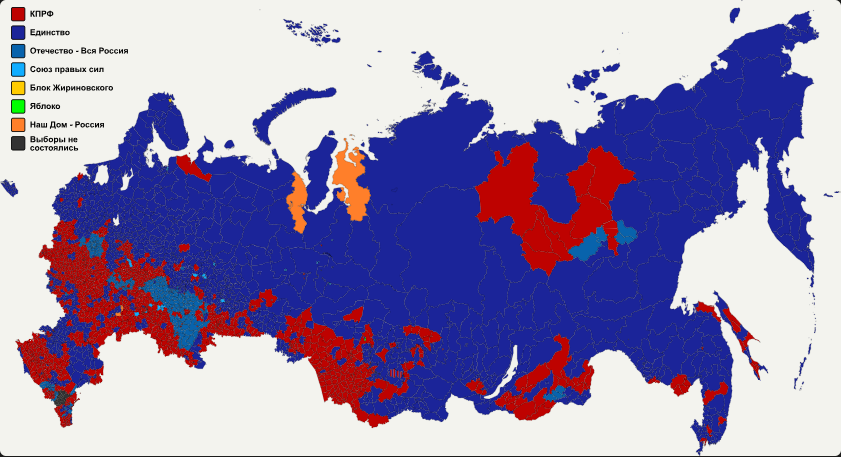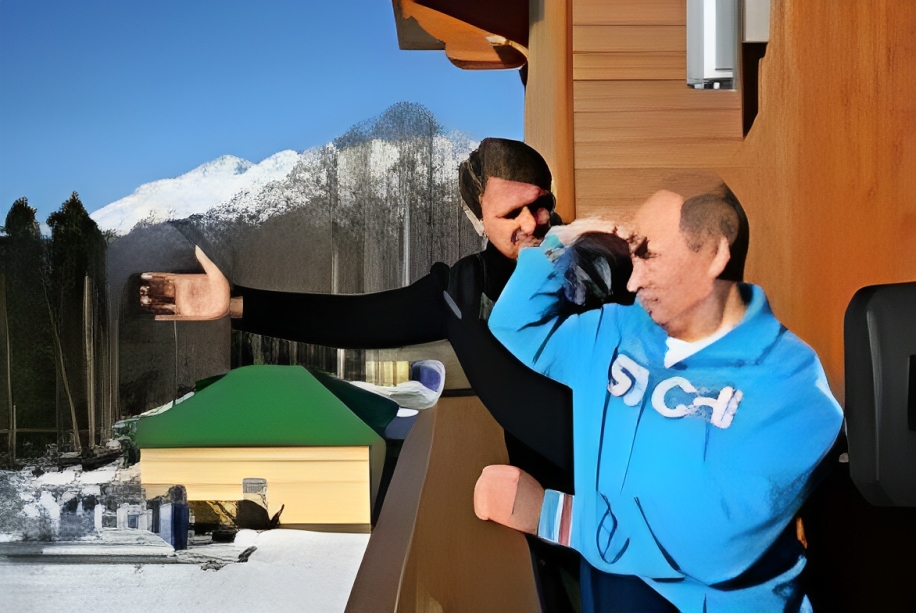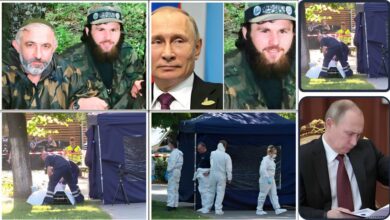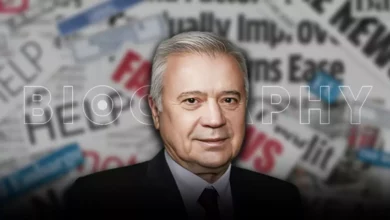Alexander Tkachov Bio: Controversial Policies and International Sanctions 2023

Aleksandr Nikolayevich Tkachov, (Russian: Алекса́ндр Никола́евич Ткачёв) born on December 23, 1960, is a Russian politician held the position of Minister of Agriculture in Russia in Dmitry Medvedev’s Cabinet from April 2015 to May 2018 Prior to this role, Tkachov served as the Governor of Krasnodar Krai in the southern European part of Russia from 2001 to 2015.
Introduction to Alexander Tkachov Bio
Alexander Tkachov Bio: In 1960, in Vyselki, Krasnodar Krai, Alexander Tkachov entered Krasnodar Krai’s legislative assembly in 1994. He later secured a spot in the State Duma of Russia in 1995 and was re-elected in 1999. Taking the helm as the Governor of Krasnodar Krai on December 3, 2000, he won re-election on March 14, 2004, holding a degree from the Krasnodar Polytechnic Institute. The Financial Times characterizes him as one of Vladimir Putin’s unwavering supporters.
Tkachyov has championed the construction of a dam across the Kerch Strait, linking Krasnodar Krai and Ukraine. Notably, he has taken a firm stance against illegal immigration in Russia, with some critics interpreting his statements, especially against the Meskhetian Turks, as racist.
Pledging to expel “aliens and dissenters” from his region, Tkachyov drew attention in 2008 for expressing frustration about the slow progress of construction projects for the 2014 Sochi Olympics. He cautioned that the successful Olympics bid might be relocated unless significant changes were made, resulting in a missed economic opportunity for the region.

In a noteworthy move on September 2, 2012, Tkachyov outlined plans to deploy a paramilitary force of Cossacks in Krasnodar Krai, acting as vigilantes to discourage internal immigration by Muslim Russians. In a speech to the police, he asserted, “What you can’t do, the Cossacks can. We have no other way—we shall stamp it out, instill order, demand paperwork, and enforce migration policies.”
Vladimir Putin appointed Tkachyov as the Minister of Agriculture in Dmitry Medvedev’s Cabinet on February 22, 2015, succeeding Nikolay Fyodorov, who moved to the administration of the President of the Russian Federation.
In October 2017, during a cabinet meeting, Putin playfully dismissed Tkachov’s suggestion of exporting pork to Indonesia, a predominantly Muslim country where pork consumption is uncommon. Putin clarified, “Indonesia is a Muslim country; hence, its people do not eat pork.” Tkachov responded, “They will.” Putin retorted, “No, they will not,” bursting into laughter. Tkachov then clarified that he meant South Korea, not Indonesia. Despite Putin’s comments, over 34 million non-Muslim Indonesians regularly consume pork, and Indonesia imported more than one million tons of pork in 2017.
Early Life and Education
Birth and upbringing in Vyselki, Krasnodar Krai
Born in 1960 in Vyselki, a rural locality and the administrative center of Vyselkovsky District in Krasnodar Krai, Russia, Alexander Tkachov is a prominent Russian politician. With a population of approximately 19,426 as of 2010, Vyselki is the backdrop of Tkachov’s early life.
Tkachov’s political career took off when he was elected to Krasnodar Krai’s legislative assembly in 1994. Subsequently, in 1995, he earned a seat in the State Duma of Russia. Demonstrating his political acumen, Tkachov secured the position of Governor of Krasnodar Krai on December 3, 2000, and was re-elected in 2004.
Educational background at Krasnodar Polytechnic Institute
Krasnodar Polytechnic Institute is a university located in Krasnodar Krai, Russia. It was established in 1963. Alexander Tkachov, a Russian politician, graduated from the Krasnodar Polytechnic Institute.
Entry into politics through Krasnodar Krai’s legislative assembly in 1994
Alexander Tkachov embarked on his political journey in 1994 with his election to the Legislative Assembly of the Krasnodar Territory. Subsequently, in 1995, he sought a position in the State Duma of the Russian Federation.
Rise in Russian Politics
Election to the State Duma of Russia in 1995 and 1999
In 1995, Alexander Tkachov successfully ran for a seat in the State Duma of the Russian Federation. Following his victory, he aligned himself with the Agrarian Group, forming an alliance with the Communist Party. Subsequently, he assumed a pivotal role as a member of the Committee on Budget, Taxes, Banks, and Finance.
This period marked a significant juncture in Tkachov’s political journey, propelling him to further success. In December 2000, he secured the position of Governor of the Krasnodar Territory.

Tkachov’s trajectory in politics began with his triumphant bid for a seat in the State Duma in 1995. His post-election affiliations included joining the Agrarian Group and aligning with the Communist Party. Notably, he played a crucial role in the Committee on Budget, Taxes, Banks, and Finance.
This marked a turning point in Tkachov’s political career, paving the way for his subsequent election as the Governor of the Krasnodar Territory in December 2000.
Description of his role as one of Vladimir Putin’s “most loyal lieutenants,” according to the Financial Times
The Financial Times characterizes Alexander Tkachov as one of Vladimir Putin’s “most loyal lieutenants,” highlighting his close ties to Putin and his influential role in Russian politics. Tkachov’s career is defined by his service as the Governor of Krasnodar Krai and later as the Minister of Agriculture in Dmitry Medvedev’s Cabinet. His alignment with Putin’s administration and prominent roles in regional and national governance solidify his image as a trustworthy and key figure in Putin’s political network.
Election as Governor of Krasnodar Krai in 2000 and subsequent re-elections
Alexander Tkachov was elected as the Governor of Krasnodar Krai on December 3, 2000, and was subsequently re-elected on March 14, 2004.
Controversial Positions and Advocacy
Advocacy for a dam across the Kerch Strait
Alexander Tkachov, the Russian politician, has championed the idea of constructing a dam across the Kerch Strait, which separates the Black Sea and the Sea of Azov. However, it’s crucial to clarify that the recent controversy regarding the Kerch Strait and the dam construction is distinct from Tkachov’s proposal.
The controversy stems from a different project initiated after Russia annexed Crimea in 2014. In response, Ukraine erected a concrete dam on the North Crimean Canal, redirecting water from the Dnieper River to both Crimea and the Kherson region of Ukraine. This action escalated tensions between Russia and Ukraine, with Russia assuming control of canal operations and redirecting alternative water sources to the region.
To transport water to Crimea, Russia utilized a $3.7 billion bridge across the Kerch Strait. Notably, this bridge is unrelated to Tkachov’s advocacy for a dam in the same location. Tkachov’s proposal addresses a separate issue and should not be confused with the preceding events involving the North Crimean Canal and the bridge construction.
Efforts to drive “aliens and dissenters” out of his region
Alexander Tkachov, the Russian politician, is renowned for his firm stance against illegal immigration in Russia. Some commentators find his remarks, especially those directed towards the Meskhetian Turks, controversial. Tkachov has vowed to expel “the aliens and dissenters” from his region, a position that has ignited debate and criticism. Some view it as discriminatory or inflammatory. However, it is crucial to delve into the specific details and context of these statements for a comprehensive understanding of their implications and the reactions they have elicited.
2014 Sochi Olympics Controversy
The 2014 Sochi Winter Olympics were riddled with controversies and issues spanning lavish spending, cronyism, corruption, and notable political and human rights concerns. The Games’ price tag skyrocketed to a staggering $51 billion, earning it the title of the most expensive Olympics in history. Adding to the tumult, the Sochi Games became a focal point of political tension, drawing negative attention from Western media and casting shadows on Russia’s international image.


Beyond financial woes, the Games grappled with a doping scandal that resulted in the forfeiture of medals and the dethroning of Russia from its top ranking. The controversy extended to political and human rights, particularly the treatment of LGBT individuals in Russia. The enactment of the “gay propaganda law” before the Games triggered international outrage, sparking protests and amplifying global scrutiny of LGBT rights in the country.
The Sochi Games coincided with the 150th anniversary of the Circassian genocide, intensifying disputes and calls for event cancellation or relocation unless Russia issued an apology for the historical events.
In essence, a convergence of controversies, including financial strain, political unrest, and human rights issues, contributed to the contentious nature of the 2014 Sochi Winter Olympics.
Paramilitary Force and Immigration Policies
In 2012, Krasnodar Krai Governor Alexander Tkachov stirred controversy by proposing to deploy a paramilitary force consisting of one thousand unarmed but uniformed Kuban cossacks. The intended purpose was to aid police patrols in the region and specifically target what Tkachov termed “illegal immigration” from neighboring Caucasian republics. This decision sparked criticism, with many viewing it as discriminatory and potentially inflammatory.
The Cossacks, historically known for their anti-ethnic migrant ideology, have been associated with a general animosity towards ethnic minorities, particularly Chechens, Armenians, and Jews. This ideology has raised concerns about the potential for discrimination in the enforcement of migration policies.
Beyond their controversial role in immigration control, Cossacks in Krasnodar Krai have engaged in diverse activities. These include participating in conservation efforts, protecting and restoring forests, fostering patriotic values among children and youth, preparing individuals for military service, providing assistance during natural disasters and emergencies, and actively contributing to firefighting efforts.
Tkachov’s initiative to involve the Cossacks in law enforcement reflects a broader pattern of using unconventional methods to address regional issues. This move, however, remains a point of contention, with critics expressing reservations about the potential implications for minority communities and the overall approach to policing in the region.
Minister of Agriculture Appointment
Vladimir Putin’s decision to appoint Tkachov as the Minister of Agriculture in 2015
In 2015, Russian President Vladimir Putin appointed Alexander Tkachov as the Minister of Agriculture, aiming to fortify the agricultural sector and amplify food production in Russia. Tkachov, who had been in charge of Krasnodar Krai since 2001, had the difficult task of satisfying domestic market demand for Russian goods, particularly in light of the Western food import ban resulting from EU and U.S. sanctions.
Tkachov’s substantial experience in Krasnodar Krai, a pivotal wheat-producing region, was deemed instrumental in advancing Russia’s agricultural prowess. His appointment reflected the government’s commitment to enhancing the nation’s food security and agricultural self-sufficiency amid geopolitical challenges.
Replacement of Nikolay Fyodorov in Dmitry Medvedev’s Cabinet

In 2015, Alexander Tkachov assumed the role of Russia’s Minister of Agriculture in Dmitry Medvedev’s Cabinet, succeeding Nikolay Fyodorov. Fyodorov, in turn, was offered the position of Presidential Aide for Agricultural Affairs by Putin during a governmental session. The precise reasons behind Fyodorov’s replacement remain unclear based on available sources. Nevertheless, Tkachov’s appointment was perceived as a strategic move by the government to enhance the agricultural sector and promote increased food production in Russia.
Overview of Tkachov’s responsibilities and initiatives in the new role
As Russia’s Minister of Agriculture, Alexander Tkachov played a crucial role in fortifying the agricultural sector and increasing food production in the country. His primary objective was to saturate the domestic market with Russian products, alleviating strain on the food industry, especially in the wake of sanctions leading to a ban on Western food imports imposed by the European Union and the United States.
Tkachov’s wealth of experience in Krasnodar Krai, a pivotal wheat-producing region, was deemed invaluable for advancing Russia’s agricultural landscape. Throughout his tenure, Tkachov spearheaded numerous initiatives. These included formulating a new agricultural policy, introducing cutting-edge technologies, and expanding agricultural exports. Under his guidance, a program supporting small and medium-sized agricultural enterprises was implemented, along with the establishment of a robust system for monitoring the quality of agricultural products.
International Incidents and Sanctions
The individual in question, Tkachov, has faced international scrutiny and sanctions for his alleged support of Russia’s annexation of Crimea. Despite being on the EU sanctions list, he obtained a visa to enter France in 2016, prompting concerns about the effective enforcement of sanctions. Tkachov reportedly attended an international conference in France during this visit, emphasizing the complexities of enforcing international sanctions.
These incidents gain significance when viewed in the broader context of international sanctions related to Russia’s actions in Ukraine. The U.S. Department of the Treasury has imposed sanctions on individuals involved in supporting Putin’s actions in Ukraine. While Tkachov’s specific role in these broader sanctions is not explicitly detailed, it highlights the geopolitical backdrop in which these incidents unfolded.
Relation with Putin
Described as one of Vladimir Putin’s most loyal lieutenants by the Financial Times, Tkachov’s close ties to Putin’s government underscore his significance in the political landscape. However, details about the nature of their personal relationship remain unclear.

Position held by Alexander Tkachov
| Position | Start Date | End Date |
| Member of the State Duma | 17 December 1995 | 5 January 2001 |
| Governor of Krasnodar Krai | 5 January 2001 | 22 April 2015 |
| Minister of Agriculture | 22 April 2015 | 7 May 2018 |
Award received by Alexander Tkachov
- Order “For Merit to the Fatherland” II class
- Order “For Merit to the Fatherland” III class
- Order “For Merit to the Fatherland” IV class
- Medal “In Commemoration of the 850th Anniversary of Moscow”
- Medal for services in conducting the population census
- Order of St. Sergius of Radonezh 2nd class
- Order of St. Sergius of Radonezh 1st class
- Order of Honour and Glory
- Crimea Defense Medal
- Q4375579
- Order of St. Sergius of Radonezh







